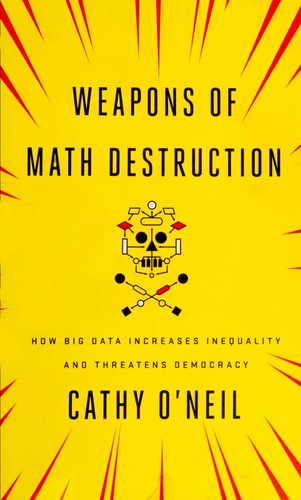jkb reviewed Weapons of math destruction by Cathy O'Neil
Suit up for Combat!
5 stars
This was an exceptional book. It's not heavy into statistics but gives the rationale for what is a WMD (Weapon of Math Destruction) and WMDs maybe a new term but we have been under the exploitation of WMDs well before we think. It's not a new phenomenon but it is one that we should be aware of.
Take a read and learn how about them so that we can all do better to combat them and use math to not only help describe the world but make it a better place to live in.
This was an exceptional book. It's not heavy into statistics but gives the rationale for what is a WMD (Weapon of Math Destruction) and WMDs maybe a new term but we have been under the exploitation of WMDs well before we think. It's not a new phenomenon but it is one that we should be aware of.
Take a read and learn how about them so that we can all do better to combat them and use math to not only help describe the world but make it a better place to live in.




